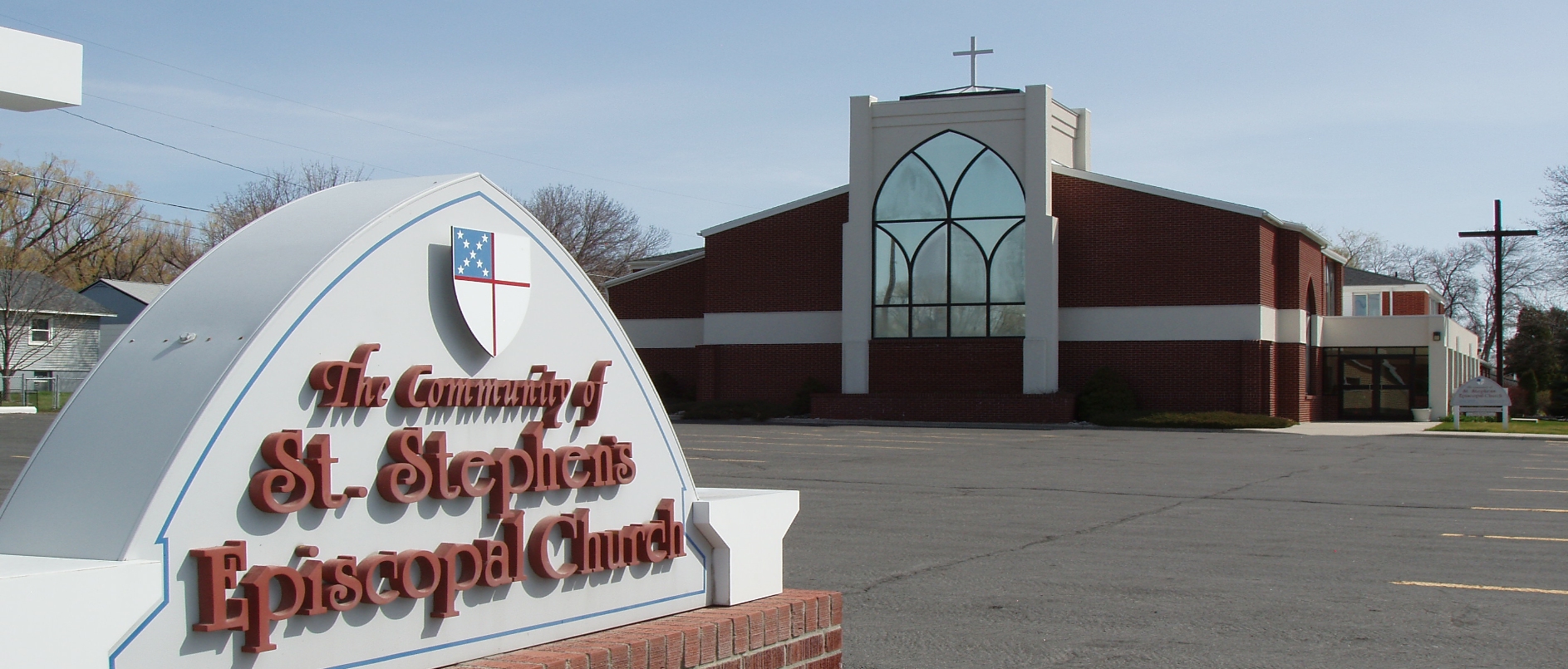Fr. Jacob's March 2015 Newsletter Message
Let it be
Christmas feels like it is a very long way away. The decorations are safely packed up, the tree has long since gone and none of it will go back up for, what seems like, a very long time.
And yet - there's a hidden Christmas secret at the heart of the month of March. You don't quite need to dig the tinsel out but I want to persuade you there's something that smells just a little Christmassy about this season too. For if December 25th marks the remembrance of the Birth of Christ, then exactly nine months before, March 25th, marks the remembrance of the Annunciation - that is, the announcement that St. Mary the Virgin will conceive a child who is the Son of God.
Everyone knows that the angels hymned God's glory before the amazed shepherds, to celebrate the birth of Our Lord. On March 25th we remember that the mighty angel Gabriel, stood before St. Mary, and told her the utterly unexpected and extraordinary news not just that she was pregnant but that the child to be born will reign forever and ever, the Son of the Most High.
We will celebrate the Annunciation on 25 March - a small joy-filled extension of the Christmas tale - in holy eucharist at 9:30 am in the chapel. You are warmly invited. But there's something else - notice this:
The angle said to her, 'Do not be afraid, Mary, for you have found favor with God. An now, you will conceive in your womb and bear a son, and you will name him Jesus. He will be great, and will be called the Son of the Most High, and the Lord God will give to him the throne of his ancestor David. He will reign over the house of Jacob for ever, and of his kingdom there will be no end.' Mary said to the angel, 'How can this be, since I am a virgin?' The angel said to her, v'The Holy Spirit will come upon you, and the power of the Most High will overshadow you; therefore the child to be born will be holy; he will be called Son of God. And now, your relative Elizabeth in her old age has also conceived a son; and this is the sixth month for her who was said to be barren. For nothing will be impossible with God.' Then Mary said, 'Here am I, the very servant of the Lord; let it be with me according to your word.' Luke 1:30 - 37
There are many astonishing things about this passage - the stupendously powerful angel, the news of the virgin birth and who the Child to be born is - but I want to look, just for a moment at St. Mary's reaction, "'Here am I, the servant of the Lord; let it be with me according to your word.'" St. Mary cannot understand how the Lord God will do what he has said he will do, but, so as to say, she bows her entire being in trust and love before him. What ever the Lord promises, he will accomplish. Whatever he wills, will be nothing but good.
So St. Mary the Virgin teaches us something about a deep form of praying - a praying that longs to will what the Lord wills, and to love and trust him as he is - a praying that is sort of self emptying in love before God. Of course we meet this supremely in Christ - a sort of "letting be" - that in joy or in agony rests in love and trust before the Lord, "not my will but thine be done".
The Lord loves to hear our heart's desire. Our Savior teaches ust to "ask", "seek", and, "knock". But there is also a kind of prayer that is quietening, a stilling of our own will - that flows precisely out of a great love for the Lord God - a prayer that waits and trusts and loves. St. Mary's word to the angel at the Annunciation is this kind of prayer, "Let it be with me according to your word."
I want to give you a small challenge - in addition to your prayers that ask things of the Lord - could you possibly give time this month to the prayer that waits and loves and trusts, that humble and delightful attentiveness before the Lord who loves you. When I try to pray like this - I make and effort to be quiet and spend time in silence. My thoughts wander, and I return them to the silent, still attentiveness before the Lord.
Let us learn from St. Mary how to pray, that perhaps one day, like her, each of us might be capable of saying, "'Here am I, the servant of the Lord; let it be with me according to your word.'"
Much love,
Fr. Jacob


